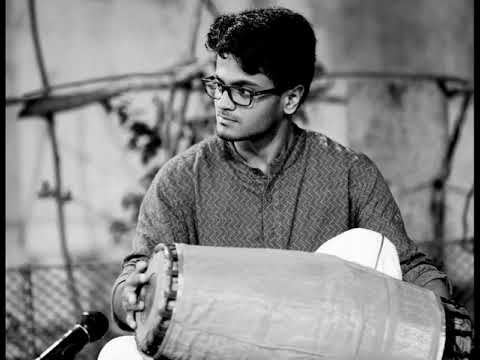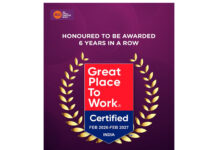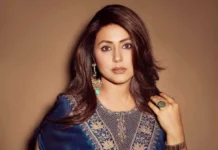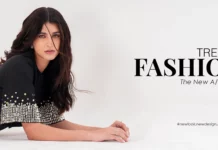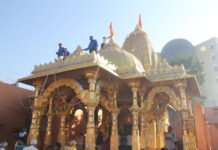NEW DELHI: In India, young classical talent can often lead a life of fusion in more ways than one. A case in point is 22-year-old Chennai-based mridangist Kishore Ramesh, who pursued his passion for the Mridangam since the age of seven, and mesmerised in the Carnatic music space with concerts and tours while earning a degree in commerce. One of the ten winners of the Carnatic Quest organised by HCL Concerts, Ramesh is a next-gen Carnatic star, who believes in exploring and experimenting while respecting the boundaries of an art form.
In 2019, he was awarded ‘A grade’ for Mridangam from All India Radio, Chennai, and has already won several fellowships and awards, along with carving a niche as a young Carnatic performer. Performing for a ‘Baithak’ series concert on May 28, Ramesh speaks to IANSlife about his practice:
Q: Please tell us how you took to Carnatic music, and about your journey thus far.
A: I hail from a family of music, my grandfather, Kalaimamani K. R. Radhakrishnan was a dance master. My father R. Ramesh is a top rank Mridangist of the All India Radio, he is also a retired staff artist of All India Radio Chennai and he is a senior disciple of Guru Karaikudi Mani sir. My father never really initiated me to start learning from him. When I was a young boy, his students used to gather at home and practice for hours. That instilled a passion in me for Mridangam. One random day, I started playing along with them and hence began my journey with the Mridangam. Another inspiring factor in my early days was the Amrutham CD album, a collection of compositions by Guru karaikudi Mani sir. I used to listen to the CD on repeat all day every day and play along with it. This is how I was introduced to Carnatic music.
Q: What are your thoughts on Indian classical music, Hindustani and Carnatic, finding its spot on the world stage?
A: Any classical art form, be it Western or Indian, requires a certain level of qualification to appreciate it and enjoy it to the fullest. This being a fact affects the number of listeners and fans for classical music when compared with other forms of music. However, it does not pose any threat to its existence or growth. It is being observed that in the current day, many youngsters across the globe are interested to perform classical music and even take a chance at making a career in it. This growing interest and taste in classical music from the current generation worldwide is certainly a promising factor.
Q: The trends of fusion of electronic music and western beats in Carnatic music is slowly picking up. Are you a purist?
A: I am not a purist. I do not believe that electronic music should not interfere with Carnatic music and create a fusion. There are so many nuances and intricacies in electronic music as well. It is not easy to master it. There’s so much to learn. In my humble opinion, anything that aids the presentation of a ‘kriti’ (art) and enhances its beauty should be allowed and enjoyed.
Q: The Carnatic Quest aims to attract both conservative and contemporary lovers of Carnatic music. As a performer, how different can these two groups be?
A: There are always two groups of music connoisseurs. One group does not appreciate any deviations from what has been passed on as traditions. The other group believes in deviating and exploring the unexplored. My personal stand is to possess an explorative attitude but very importantly, keeping in mind the amazing music that has been created by our past masters. Exploration with boundaries is certainly necessary to keep ourselves and the art form evolving. I believe it is the nature of any art form to evolve and keep evolving but it is important to not lose its intent or originality.
Q: In a day and age when the listener has abundant music options to listen to, how do you think classical music can keep up, especially when the larger public complains of ‘not quite understanding classical’?
A: It is not true that people don’t understand Carnatic music and do not enjoy it. It depends on the level of interest a person has, to understand or enjoy Carnatic music. In fact, post concerts, I’ve had many people come up to me and tell me that they didn’t quite understand what happened but they enjoyed what they heard. However, it is indeed true that if you understand Carnatic music, it takes your listening experience to a different platter. My desire is always to get a wider audience for Carnatic music.
Q: Please tell us about the upcoming HCL Concerts you are scheduled to play for.
A: Performing for Baithak by HCL Concerts was a prestigious opportunity. I am very grateful to HCL Concerts for conducting Carnatic Quest, encouraging youngsters like us and giving us a wonderful platform to perform for millions of people across the world. I hope Carnatic Quest keeps happening every year so as to nurture young talents and promote them. Looking forward to the premiere of my next concert in the Baithak series accompanying Vid. Smruthi Bhaskar (Vocal) along with Vid. Adarsh Ajaykumar (Violin) on Friday at 7 pm.

